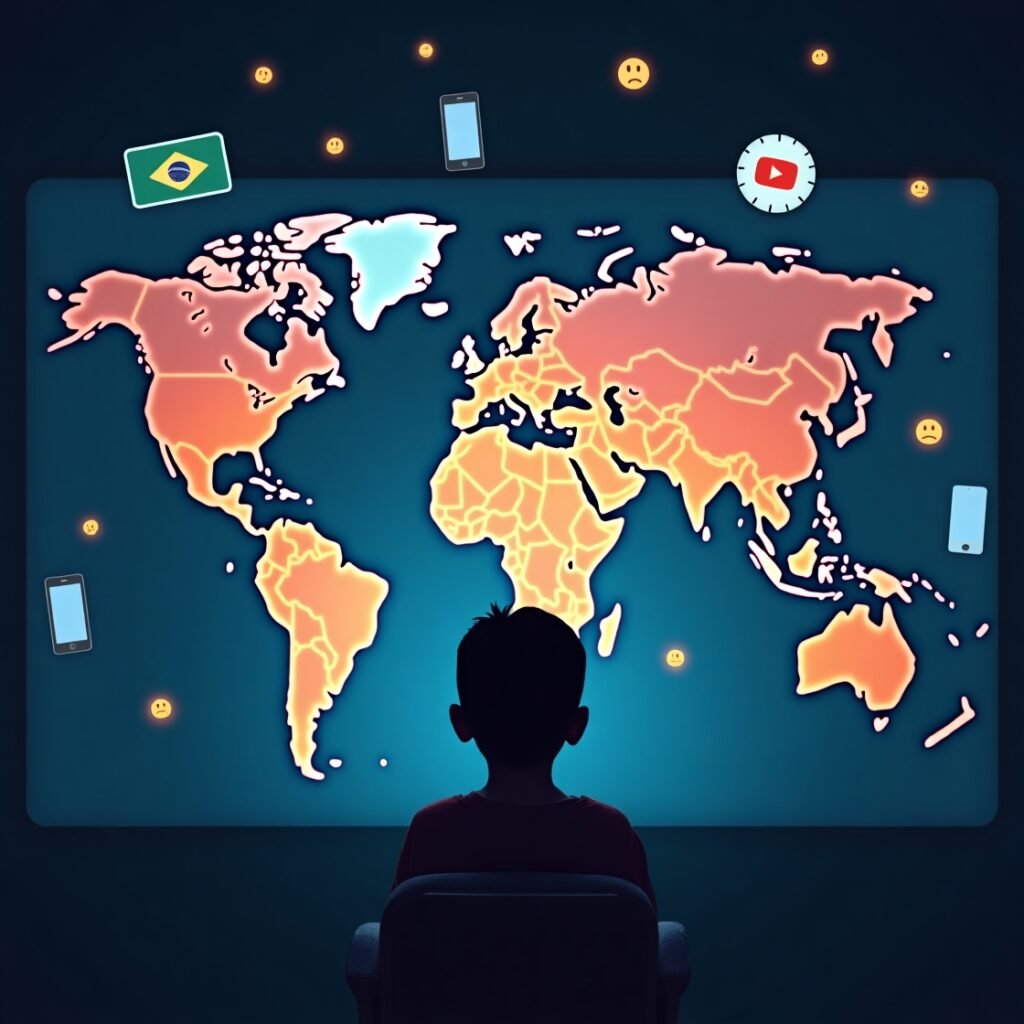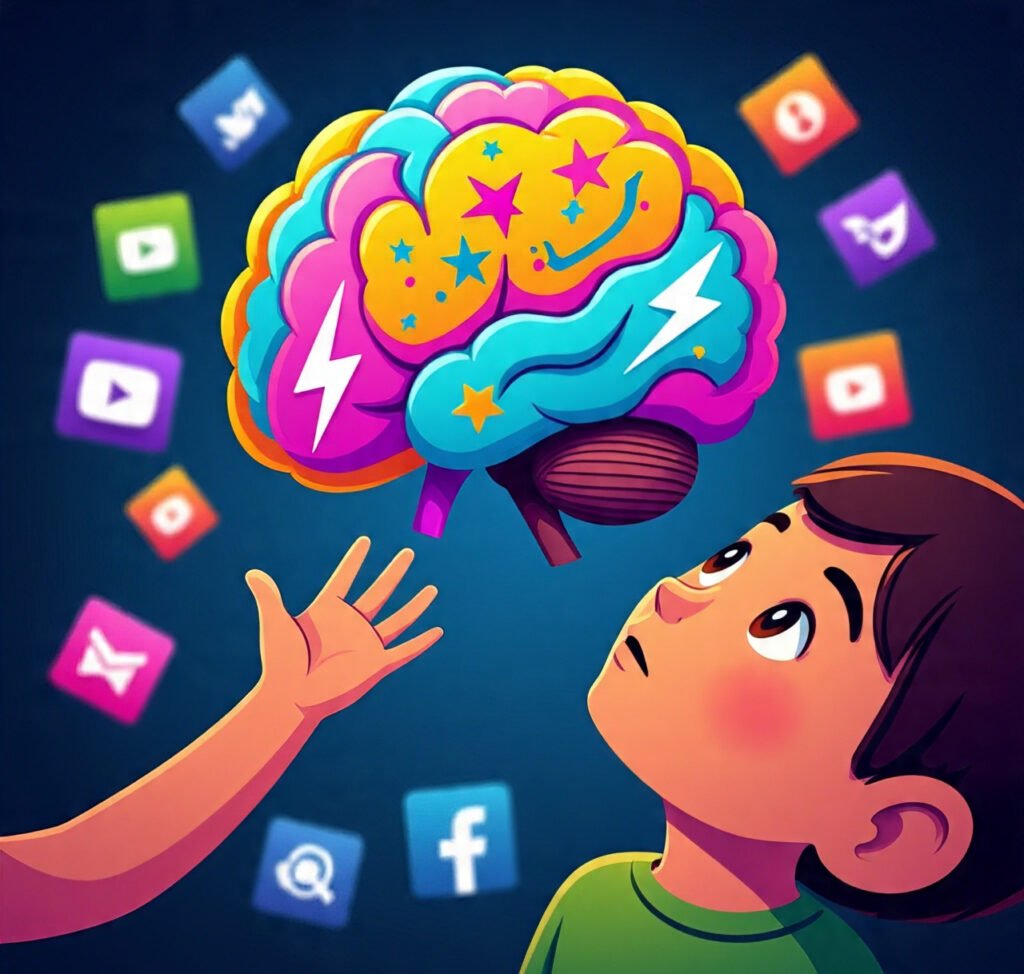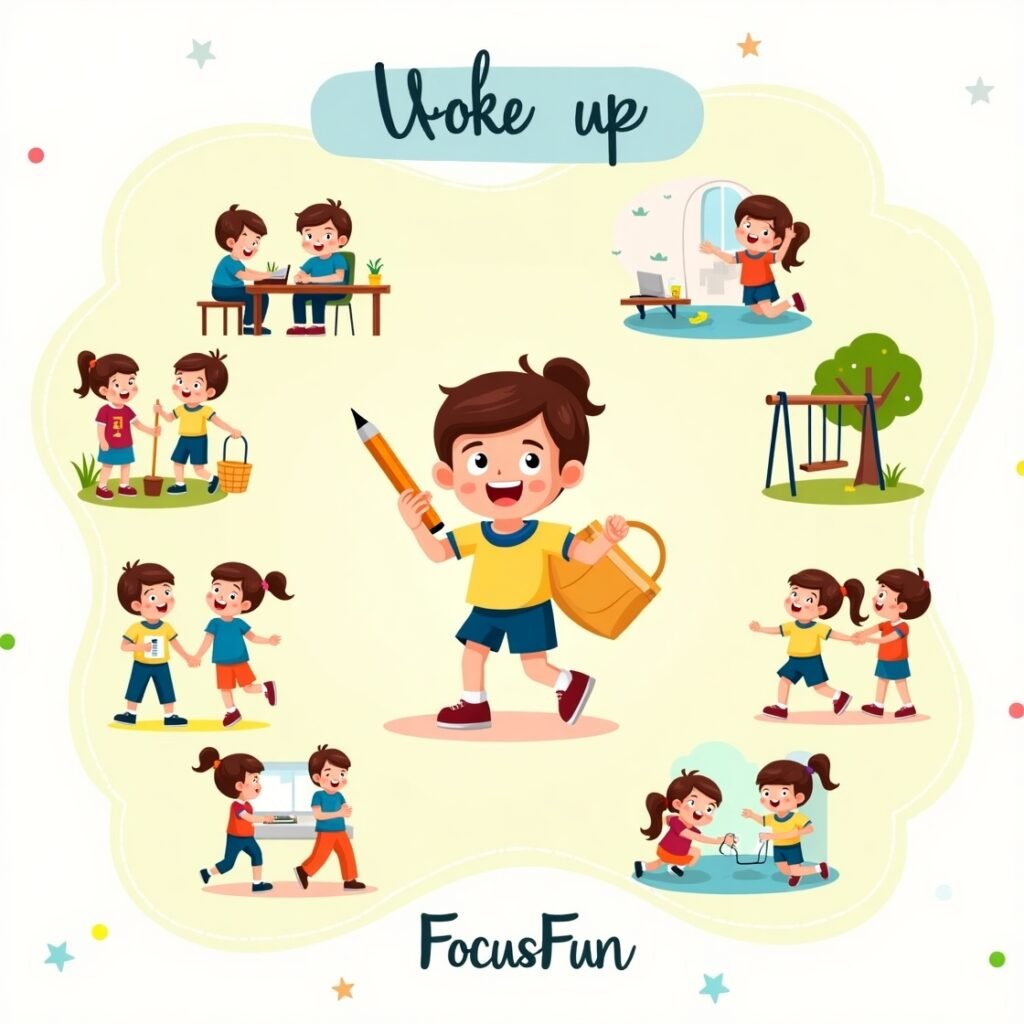Table of Contents

That Worst screen time fact struck me on a lazy Sunday morning with a cup of chai in my hand and scrolling through yet another parenting forum. A headline flashed—”Filipino Kids Spend More Than 10 Hours a Day on Screens.” My heart skipped a beat. Ten hours?
As the mother of an inquisitive 7-year-old son, Arnav, I reflected on the previous weeks. He had gradually relinquished his crayons, bedtime stories replaced by YouTube shorts, and his soccer ball replaced by incessant tapping of game apps. That article? It was not about the Philippines alone. It was as if it was about me. About us.
That was the start of a journey—not to do away with screens but to change the way we used them. And that’s how FocusFun came into our lives.
But let me start again.
The Global Wake-Up Call

It wasn’t only the Philippines. Countries such as Brazil, South Africa, and Thailand are recording 8 to 10 hours of daily screen time, particularly among young consumers. The global average floats around 6.5 hours a day. And if you dissect it—streaming, social media, gaming—it’s not hard to understand how rapidly the minutes pile up.
In Indian urban homes, particularly after the pandemic, the trend has gained momentum. Online lessons, virtual homework, and Zoom playdates have slipped in as the new normal. And it is not just adolescents; even toddlers these days swipe screens more deftly than turning over book pages.
We are living through a global trend. But do we know what’s it costing us?
The Real Cost of ‘Just 5 More Minutes’
Back to Arnav. Initially, Worst screen time seemed harmless. After all, we all needed some quiet. I justified it like every parent does:

- “It’s educational.”
- “At least he’s not running around making a mess.”
- “He deserves a break after school.”
But gradually, the changes sneaked in. He avoided eye contact. He became fidgety without a screen. Night routines became struggles. Homework was always “later.” And then there was the day when I asked him to draw something he cared about—and he drew his favorite YouTuber.
Not his pet. Not his friends. A stranger from a screen.
I wept that evening. The truth wasn’t just heartbreakingly sad—it was frightening.
Understanding the Addiction Cycle

Psychologists worldwide are saying the same thing: excessive screen use is not just a way of life. It engages the brain’s reward system, releasing dopamine the very chemical associated with addiction. Kids addicted to rapidly changing images and continuous stimulation can have trouble focusing, sleeping, or even decoding slower-paced real-world experiences.
And in nations where Worst screen time is the greatest, these impacts are amplified. Bad attention spans, poor grades, and social isolation are no longer the exception they’re the norm.
The worst thing? Standard parenting techniques such as device bans never seem to succeed. The world is not digital. Screens are ubiquitous. The solution isn’t to take them away but to reimagine them.
That’s when my quest for something better brought me to FocusFun.
Enter FocusFun: Converting Worst Screen Time to Smart Time
What if Worst screen time could really make your child smarter?
FocusFun is not simply another app—it’s an online learning platform specifically made for kids aged 3–14. With interactive games, quizzes, puzzles, and brain boosters, it converts your child’s screen into a focus-enhancing, skill-developing space.

Arnav’s initial favorite on the platform was the “Find the Picture” game. It was easy-looking, but it conditioned his mind to read details, refine memory, and concentrate for longer periods. Next was “Math Quiz,” where he unexpectedly started liking mental calculations. “Word Missing” enhanced his spelling within weeks.
The secret? He was still working on a screen but the intention had shifted.
FocusFun made him feel self-directed and active, not merely amused. It taught him how to think, not merely observe. And for me, it provided the reassurance that he wasn’t losing himself within a screen he was developing.
Why Countries with High Screen Time Need FocusFun More Than Ever
Let’s be realistic: in countries where Worst screen time is through the roof, restricting technology is not going to fly. But giving kids the proper type of digital tools? That makes sense.

Wherever you are in Manila, Mumbai, or São Paulo, the issue is the same: too much screen time, not enough actual development.
FocusFun fills that gap perfectly. It:
- Promotes Active Engagement: Unlike watching passive videos, FocusFun games demand focus, fast thinking, and reasoning.
- Develops Core Capacities: Math, language, concentration, memory—children learn as they play.
- Facilitates Parental Control: Time management, progress tracking, and goal-setting tools enable parents to maintain control without micro-managing.
- Minimizes Dependency: Gradually over time, children automatically lower their demand for empty content as they become addicted to positive, growth-oriented activities.
In the nations with the most screen time, this is not just an option—it’s a lifeline.
A Day in Our Life with FocusFun
Here’s what a typical weekday now looks like:
- 7:30 AM: Arnav wakes up and quickly does a 5-minute math warm-up on FocusFun.
- 4:00 PM: He plays outside for an hour after school, and then spends 20 minutes on a puzzle game.
- 7:30 PM: Before bed, we do a “Word Missing” challenge together as a family.
No fights. No begging. No tantrums.
His sleeping has gotten better. He’s reading books again. And the biggest victory? He now picks FocusFun 4 times out of 5 over YouTube.
The Parent Shift: Guilt to Growth
Screen guilt exists. I know it. Perhaps you do too.

Guilt won’t shift habits. Healthy choices will.
With FocusFun, screen time becomes a bridge between technology and development, between enjoyment and concentration. It helps not only children but parents as well.
You begin to view screens no longer as the enemy. You begin to view them as a tool—one that, if done correctly, can unleash your child’s full potential.
Let’s Redefine the Global Narrative
Yes, the Philippines might have the Worst screen time, but this narrative isn’t about a single country. It’s a mirror held up to all of us.
It’s time to cease wondering how much screen time is too much. The question is really: What type of screen time is appropriate?
Because the screen isn’t leaving.
But with tools like FocusFun, neither will your child’s brilliance.
Let’s not battle the future—let’s rebuild it.
Ready to Make the Shift?
Join thousands of parents who are turning screen time into Smart Time with FocusFun. See your child concentrate more, learn quicker, and become happier—without sacrificing the digital world they adore.
FAQs
1. How many hours a day is considered phone addiction?
→ Globally, using a phone for more than 4–5 hours a day—especially for non-educational use—is often flagged as problematic and a key marker in countries battling the worst screen time trends.
2. What happens if you spend 24 hours on your phone?
→ Extended screen exposure can lead to eye strain, anxiety, fatigue, and mental burnout—common symptoms in regions with the worst screen time levels among youth.
3. Is mobile addiction a serious problem?
→ Yes. In countries with the worst screen time, mobile addiction is directly linked to sleep problems, declining academic performance, and increased social isolation
4. How does mobile addiction affect the brain?
→ Constant scrolling rewires attention spans, feeds instant gratification, and can disrupt emotional regulation especially in nations experiencing the worst screen time crisis.
5. What are the criteria for mobile addiction?
→ Loss of control, withdrawal symptoms, and neglect of real-world responsibilities are common criteria—frequently reported in studies from countries with the worst screen time.
